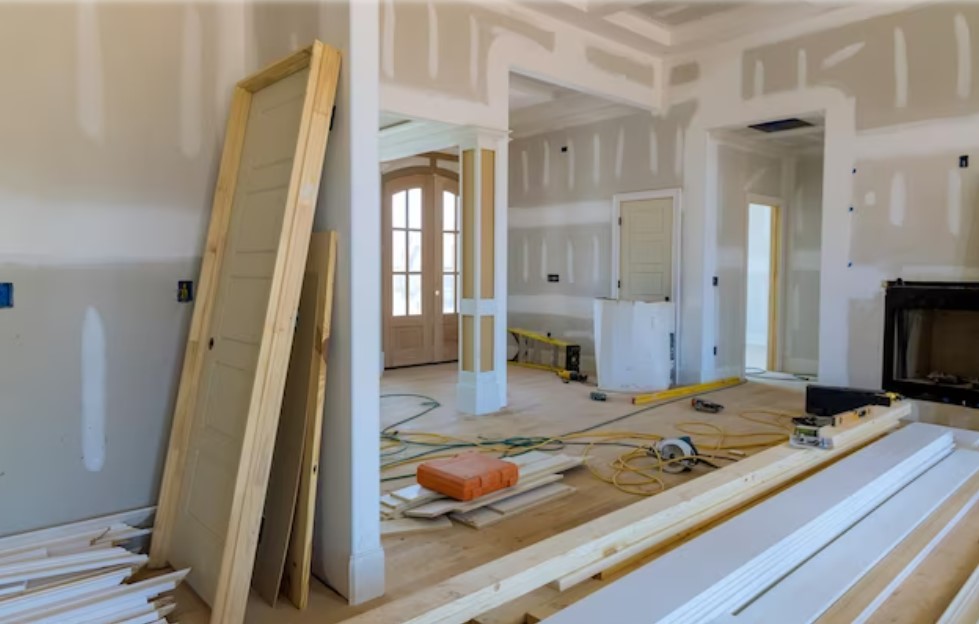The decision to sell a house soon after purchasing it is a scenario that many homeowners may face due to various reasons such as job relocation, personal circumstances, or financial changes. Understanding the optimal timeline and the factors influencing it is crucial for making an informed decision and maximizing potential benefits.
The Immediate Aftermath of Purchase
Immediately after acquiring a property, homeowners are often engulfed in the excitement and the challenges of settling into their new home. However, life’s unpredictability can prompt the need to consider selling earlier than anticipated. In this phase, it’s vital to assess your current situation, taking into account any changes in personal circumstances, financial stability, and market conditions. This assessment will form the foundation of your decision-making process, guiding you on whether an early sale is a feasible and wise choice.
One of the first hurdles encountered when considering an early sale is the financial implications. Closing costs, mortgage fees, and taxes paid during the purchase can be substantial, and selling too soon might not allow enough time to recoup these expenses. Additionally, most mortgages have a prepayment penalty clause, which can impose extra costs if you decide to sell before a certain period. Understanding these financial nuances is crucial to avoid unexpected losses and ensure a sound decision.
Market Dynamics and Timing

The real estate market is perpetually in flux, influenced by factors like economic trends, interest rates, and local demand-supply dynamics. Before deciding to sell, a thorough analysis of current market conditions is indispensable. A seller’s market, characterized by high demand and low inventory, may offer favorable conditions for a quick sale at a profitable price.
Conversely, in a buyer’s market, where supply exceeds demand, achieving a desirable sale price may be challenging and require strategic timing. For more insights and guidance on navigating these market conditions, visit https://gordonbuyshomes.com.
Timing your sale can significantly impact the outcome. Seasonal trends often play a pivotal role in buyer activity, with spring and early summer generally being the most active months for real estate transactions. Aligning your sale with these peak times can enhance visibility and attract more potential buyers, potentially leading to a quicker sale and a better price. However, personal circumstances and broader economic conditions should also be factored into the decision to ensure the timing aligns with your individual needs and market realities.
Legal and Tax Implications
Legal considerations are a critical aspect of selling a property, especially if the sale occurs shortly after purchase. Some regions may have specific regulations or waiting periods that homeowners must adhere to before putting their property back on the market. Additionally, the terms of your mortgage agreement might include clauses that affect your ability to sell within a certain timeframe. Navigating these legal constraints requires careful attention to detail and, often, consultation with real estate professionals or legal advisors.
Selling a house can have significant tax implications, particularly if the property is sold within a short period after purchase. Capital gains tax, for instance, can be higher for properties owned for less than a year, classified as short-term gains and taxed at regular income rates. Understanding these tax implications is crucial for financial planning and can influence the decision on the timing of the sale. Engaging with a tax professional can provide clarity and help in structuring the sale in a tax-efficient manner.
Preparing for the Sale

Preparing your house for sale is a crucial step towards a successful transaction. This involves not just cosmetic improvements to enhance curb appeal but also addressing any necessary repairs or maintenance issues that could deter potential buyers. The presentation of your home can significantly influence buyer perceptions and, by extension, the offers you receive. Investing time and resources into staging your home effectively can maximize its appeal and lead to a more favorable sale outcome.
The strategy you adopt for selling your home can greatly influence the process and the final sale price. This includes selecting the right real estate agent who understands the local market and your specific circumstances. Additionally, setting a realistic price based on a comprehensive market analysis is key to attracting serious buyers. In a fast-paced selling scenario, leveraging digital platforms and social media to market your property can also enhance visibility and attract a wider pool of potential buyers.
Financial Recovery and Break-Even Point
When considering selling a house soon after purchase, it’s crucial to evaluate your home’s equity and its current market value. Equity—the difference between your home’s value and what you owe on your mortgage—can significantly impact your financial recovery from the sale. If the market value of your property has increased since your purchase, you might be in a good position to sell. However, if the market has stagnated or declined, you may need to wait longer to avoid financial loss.
The break-even point is when the sale price of your home covers not only the remaining mortgage balance but also the costs incurred during the buying and selling process, including real estate agent fees, closing costs, and any renovations or improvements made. Calculating this figure requires a detailed analysis of your expenses and a realistic appraisal of your home’s current value. Reaching or surpassing this break-even point is often a key indicator that it’s a financially viable time to sell.
Emotional and Practical Considerations

Selling a home isn’t just a financial decision; it’s also an emotional one. The attachment to your home and the memories created there can make the decision to sell challenging. Additionally, the practical aspects of relocating—such as finding a new home, moving logistics, and adjusting to a new community—require careful planning and consideration. Balancing these emotional and practical considerations is essential for a smooth transition.
Conclusion
Selling a house shortly after purchasing it is a decision that requires careful consideration of various factors including financial implications, market conditions, legal constraints, and tax implications. Each step, from assessing your situation to preparing for the sale, must be approached with diligence and informed by a thorough understanding of the current real estate landscape.
With strategic planning and the right guidance, homeowners can navigate this complex process, aligning their personal needs with market opportunities to achieve a successful sale.







